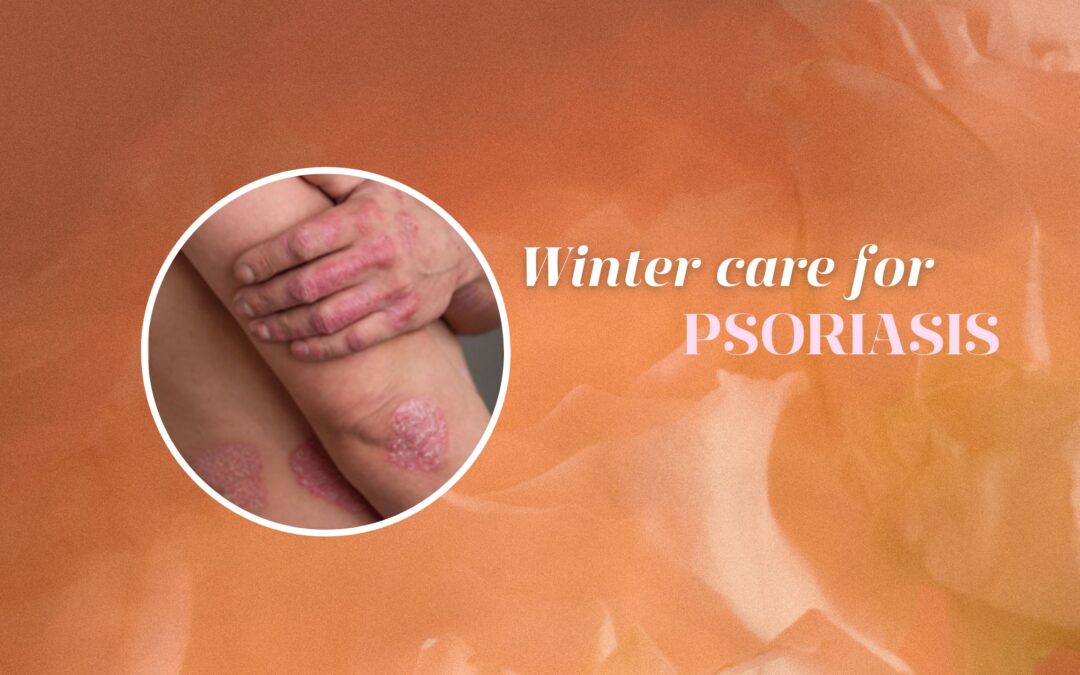Winter can significantly impact individuals with psoriasis, often exacerbating their symptoms due to a combination of environmental factors. The cold, dry air typically associated with winter can lead to increased skin dryness and flakiness. Ultraviolet radiation inhibits the rapid proliferation of skin cells, which is characteristic of psoriasis. As a result, spending less time in the sun may cause your psoriasis to flare up and your plaques to worsen. Indoor heating systems, while providing warmth, tend to reduce humidity levels, further dehydrating the skin. This lack of moisture can make psoriasis plaques more pronounced and uncomfortable, resulting in itching and irritation.
Additionally, reduced sunlight exposure during the winter months can lead to lower vitamin D levels, which are crucial for skin health and immune function. Many people with psoriasis find that sunlight helps alleviate their symptoms, so the shorter days can contribute to flare-ups. The cold weather can also induce stress and contribute to mental health challenges, such as seasonal affective disorder (SAD), which can further worsen psoriasis symptoms due to the known connection between stress and inflammatory skin conditions.
Lastly, winter clothing, often heavier and layered, can cause friction against the skin, leading to irritation and potentially triggering new patches of psoriasis. Protective measures, such as wearing soft, breathable fabrics and using moisturizers, are essential during this season. Staying hydrated, using humidifiers, and consulting with healthcare professionals for tailored treatments can help manage psoriasis effectively during the winter months.
Managing Psoriasis in winter:
- Moisturization: It is recommended that patients with psoriasis should use a moisturizer after they shower, or wash their hands. Regular moisturizing can help seal skin moisture under drier conditions, such as in winter. Moisturizing may also assist to minimize psoriasis symptoms, including lesions and itching.
- Use a humidifier: The winter months may bring reduced humidity levels, which can induce psoriasis in certain people. Using a humidifier can help manage psoriasis outbreaks. If the air in a room feels dry, individuals might use a humidifier to add moisture to the air.
- Managing Stress: Stress is a major contributor to psoriasis outbreaks. Some patients may experience increased stress around the holidays, which could worsen psoriasis symptoms. You can manage stress by setting boundaries, practice meditation and mindfulness, take breaks from stressful situations, or attend therapy sessions.
- Phototherapy; During the winter months, people may receive less natural sunlight, reducing their UVB exposure. UVB radiation from sunshine may help reduce skin cell proliferation in the treatment of psoriasis. Phototherapy uses artificial UVB light to treat psoriasis. People may receive regular treatments at a doctor’s office or at home with phototherapy equipment.
- Take short, lukewarm showers: People with psoriasis should only take one short, lukewarm shower or bath each day as bathing might aggravate and worsen their psoriasis. It can be helpful to use a hydrating cleanser without fragrance and to stay away from abrasive scrubs or washcloths. After taking a bath, gently pat dry your skin and then lightly moisten it with a moisturizer.
- Protect the skin from extreme temperatures: In the winter, it’s crucial to be warm and dress appropriately. Wearing impervious boots, gloves, and warm jackets can help protect exposed skin. When the weather is cold, people may use additional heat sources or central heating to stay warm in their houses. People with psoriasis can prevent further dryness and heat damage to their skin by sitting away from these heat sources.
- Maintain a healthy lifestyle: You can maintain a healthy lifestyle by quitting smoking, managing any health conditions, such as diabetes, losing excess weight and maintaining a moderate weight eating a nutritious and balanced diet.
- Continue taking any psoriasis medications: It is advised that individuals stick to their present course of therapy, which may include taking medicine on a daily basis to manage winter flare-ups. Some psoriasis treatments take time to start functioning. In order to guarantee that patients have strong control over their condition, a doctor may advise against changing a patient’s prescription schedule prior to the onset of the winter.

